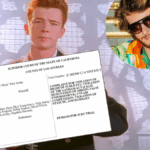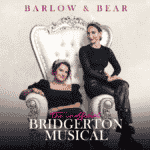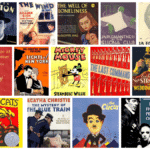It’s Friday, Friday
Gotta get down on Friday
Everybody’s lookin’ forward to the weekend, weekend.
Yesterday was Thursday, Thursday
Today i-is Friday, Friday (Partyin’)
We-we-we so excited
We so excited
We gonna have a ball today
Rebecca Black
Some people think that Rebecca Black’s “Friday” may just be the worst song in recorded history (a campaign no doubt spearheaded by Right Said Fred and the Baha Men). It also has the tendency to burrow in one’s ear like those little worms from Star Trek II: The Wrath of Khan, which means that once you hear it, you’re only going to be able to get it out of your head by replacing it with a few choruses of MMMBop. And so, in the age of Google, YouTube and Twitter, this horrible yet horribly catchy song and its accompanying music video — both of which probably should have been confined to Black’s family and a close circle of forgiving friends — have now been seen and heard by over 80 million people.
But wait, there’s more: “Friday” now appears to be at the center of a legal showdown over who owns the copyright. Some of you may be thinking: who would admit to liking this song, let alone owning it? But, as they say, 50 million Elvis fans can’t be wrong. And when you have a song that people are paying for just so they can talk about how bad it is, well, my friends, now you’ve got something worth fighting over.
In case you need bringing up to speed, “Friday” is a song about Friday, a day after Thursday, during which 13-year-old singer Rebecca Black gets up, eats cereal, and has to decide whether to chill in the back seat or the front seat on the way to school, all while looking forward to the weekend so she can go partyin’, partyin’ (yeah). No irony, no hidden meaning, just good old-fashioned unabashed bubblegum pop. (Unless you reinterpret it as a Bob Dylan song, in which case it instantly takes on a strange countercultural significance.)
Last fall, Black was an ordinary kid from Orange County when a friend introduced her to Ark Music Factory, an L.A.-based production company. Black’s mother, Georgina Kelly, reportedly paid the company $4,000 to record the song and produce the accompanying video for “Friday,” a song pre-written by Ark founders Patrice Wilson and Clarence Jey. According to Wilson, Kelly’s payment covered only a fraction of the production costs for the song and video, which was shot at Black’s father’s house in January, and featured Black’s family and friends as extras. When the video was finished, Black posted it on YouTube, not expecting it to be seen by many people. And it wasn’t, until early March, when it appeared on comedian Daniel Tosh’s Tosh.0 blog, in a post entitled “Songwriting Isn’t For Everyone.”
The video soon went viral. As of this posting, it has received over 80 million hits on YouTube (with over 1.5 million “dislikes,” a YouTube record). And Black is now a certifiable star, at least for the moment. Her song is riding the Billboard Hot 100, and has charted in several other countries. Next up for Black: serving as Ryan Seacrest’s hand-picked “orange carpet” correspondent for the Nickelodeon Kids’ Choice Awards on Saturday.
But everything may not be as “fun, fun, fun, fun” when it comes to the business side of “Friday.” Last Friday (really!), Rolling Stone reported (in a story I’m assuming was not an April Fool’s joke), that Black’s mother was accusing Ark Music Factory of copyright infringement in connection with the song. A letter from Black’s lawyer alleges that Ark failed to provide Black with the master recordings of her song and video as required by their November 2010 agreement, has been exploiting her likeness on YouTube, iTunes, and Ark’s website without permission, has falsely claimed she is exclusively signed to Ark, and created an unauthorized “Friday” ringtone.
Ark’s Wilson reportedly said that Black’s mother “will get the masters and the song. They can have it all,” and agreed that Black was not exclusive to Ark. But Ark’s lawyer is casting doubt on the validity of the November agreement, saying it was not “court-approved,” and adding: “They say they own the composition. Nothing could be further from the truth. If they go forward and license it or attempt to copyright it in their name, that would be copyright infringement and we’d act accordingly under the circumstances.”
So, how do we sort out this mess so everyone can get back to dealing with more important issues (like figuring out what a 13-year-old girl is doing partyin’ partyin’ and riding in her friend’s car without a seatbelt)?
Well, first things first: any piece of recorded music actually has two separate copyrights. There’s a copyright in the sound recording, which is the particular version of the song sung by Black, and a copyright in the composition, which is the underlying music and lyrics written by Wilson and Jey. This rather unintuitive concept, by itself, has been enough to pay countless lawyers’ salaries over the years.
The copyright in a composition is owned, at least initially, by the songwriters. The copyright in a sound recording is usually owned in the first instance by the people responsible for creating the sounds appearing on the recording, which would include the singer, but could also include the musicians, producer and sound engineer, who might all own the copyright jointly. If these individuals aren’t record label employees (in which case the label would own the recording as a “work made for hire”), labels usually require that they assign their copyright interests in the sound recording to the label, either for some flat fee or in exchange for royalties from record sales.
But because Ark Music seems less like a record label than a recording studio for hire, it appears that not only did Black not assign her rights in the sound recording to Ark, but that Ark agreed to transfer any rights in the recording that it owned to Black.
And what about the comment from Ark’s attorney that Black’s agreement with Ark was not “court-approved?” Contracts typically don’t need court approval to be valid. But, as we explained with respect to recent Oscar nominee/phenom Hailee Steinfeld, contracts with a minor may be voidable. Minors generally lack the capacity to enter into a contract that will legally bind them, and may be able to “dissafirm” obligations that were entered into before they turn 18. In order to avoid a situation in which entertainment companies invest significant sums of money in an artist only to have the minor later disaffirm, laws in California and other states allow parties to seek court approval of entertainment contracts involving minors. Once these contracts are approved, the minor’s right to cancel the contract will be limited
Of course, the problem with Ark’s lawyer’s threat about court confirmation is that disaffirmance only works one way: contractual promises made between an adult and a minor are usually binding on the adult. Therefore, the fact that Black’s contract was not “court-approved” doesn’t mean that Ark can disaffirm it on the ground that Black lacked capacity — though it does mean that Black herself could challenge the contract down the road, if she were so inclined.
So let’s assume for the sake of argument that Ark owns the copyright in the composition and Black owns the right in the sound recording. What are their respective rights?
Black would likely get the lion’s share of digital download revenues from services like iTunes. After Apple takes its cut (usually 29 cents for a 99 cent song), record companies distribute digital “mechanical royalties” to the songwriters or their publishing companies to account for the use of the underlying composition, as well as to the producers, artist and other performers. If Black, as the owner of the sound recording, steps into the role traditionally held by the record label, she’d keep both the artist’s share and the label’s share (thereby earning the jealousy and scorn of every artist who ever signed up for indentured servitude in his or her first recording agreement), but would be responsible for obtaining a “digital phonograph delivery” (DPD) license and paying the owner of the composition (here, Ark or the writers’ publishing company).
As the owner of the composition, Ark would be entitled to revenues from any synchronization, (“sync”) licenses that would be needed if the composition is used as background music in television shows or motion pictures (I’m thinking that Dr. House, fresh off solving another medical mystery, can hobble off into the sunset to the sounds of “fun, fun, fun, fun”). If Black’s version of the song is also used (as opposed to a cover version), she’d be entitled to revenue from a “master use” license.
Ark would also be entitled to the “public performance” royalties that are generated when the composition is played live, in a bar, on television or on over-the-air radio. These rights are generally collected by “performing rights organizations” (PROs) like ASCAP and BMI, which pursue them from everyone from concert venues to Girl Scout jamborees (seriously). Under current U.S. copyright law, there is no public performance right in sound recordings, which means that Black would not be entitled to payment for these types of uses (nor would the makers of Auto-Tune, who are probably no less to thank/blame for Black’s performance than Black herself).
The situation is different when it comes to digital performances. The owners of both the sound recording and composition are entitled to revenue from streaming, webcasts and other digital delivery services. As a result of the way copyright law has developed — which is to say, ad hoc, aimlessly, in fits and starts, and with plenty of lobbyist influence — public performance royalties are payable to the owner of a sound recording for digital-based services such as SiriusXM, even though the same performances on terrestrial radio stations do not generate revenue for the sound recoding. (Still no royalties to Auto-Tune, though.) Web-based services like YouTube often offer a “revenue share” program for the owners of music videos and viral videos, and pay a cut to the publisher or their PROs — so both Black and Ark would both likely be entitled to revenues for these uses.
Mobile phone ringtones also implicate the master recording and the composition, so both sides may share in these royalties as well. A mechanical licensing fee needs to be paid to reproduce the composition in a ringtone, just like on a record, although courts have ruled that ringtones don’t constitute a “public performance” of the underlying music, so separate public performance royalties don’t need to be paid on behalf of the composers.
All of these revenue streams (and more) will be in play if Ark Music and Rebecca Black’s mother can’t reach an agreement on ownership and royalty splits. (But isn’t it comforting/disturbing to know that there are so many ways to monetize this song?) Of course, for a song that likely has a limited shelf-life, it’s not in the best interest of either party to engage in an expensive and protracted legal battle over the rights. My advice: the parties should sit down right away and negotiate a resolution to be announced on some random day of the week. Then everyone can get back to looking forward to the weekend, weekend and thinking about fun (yeah).






